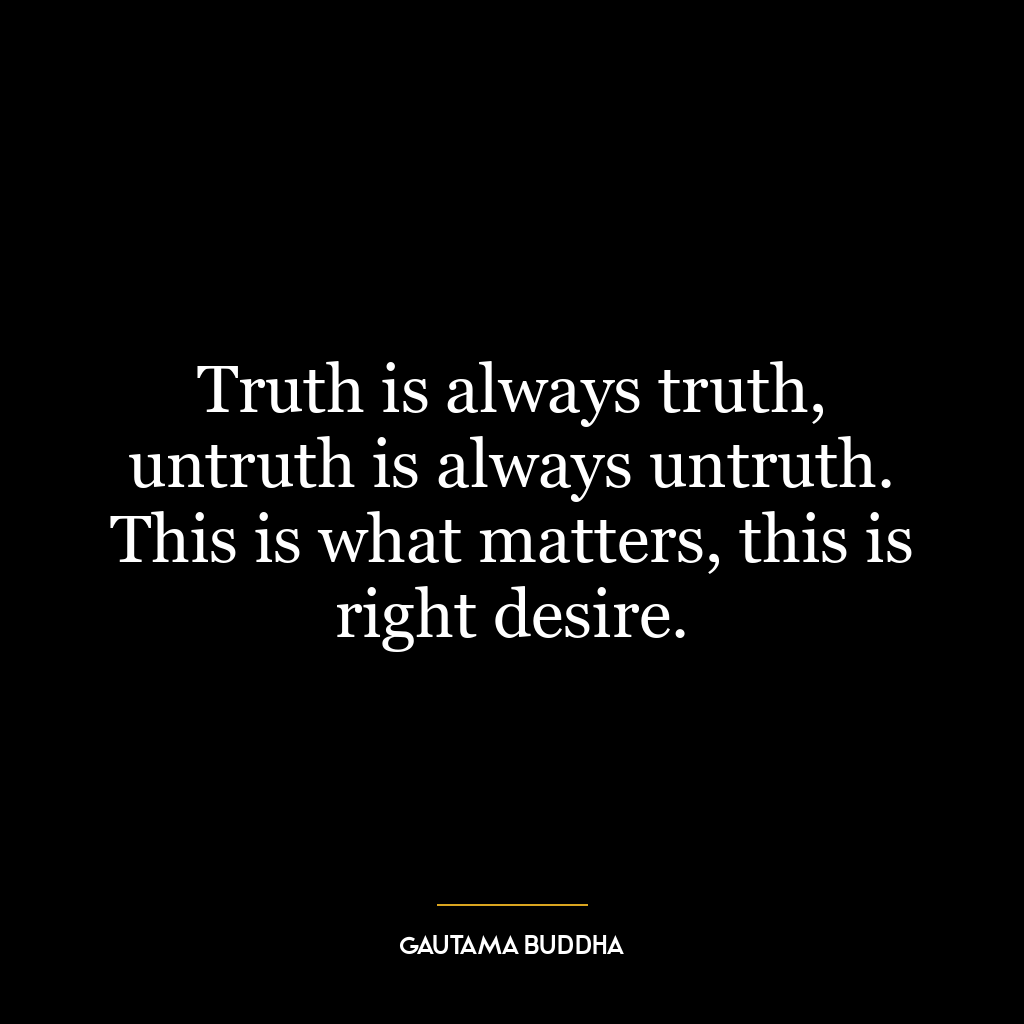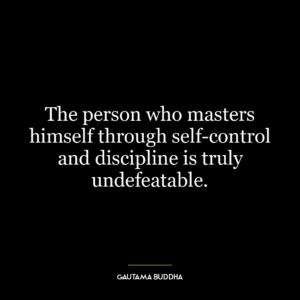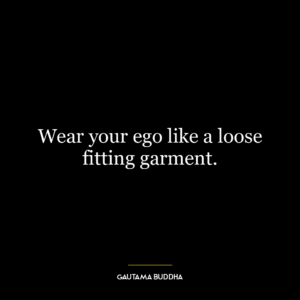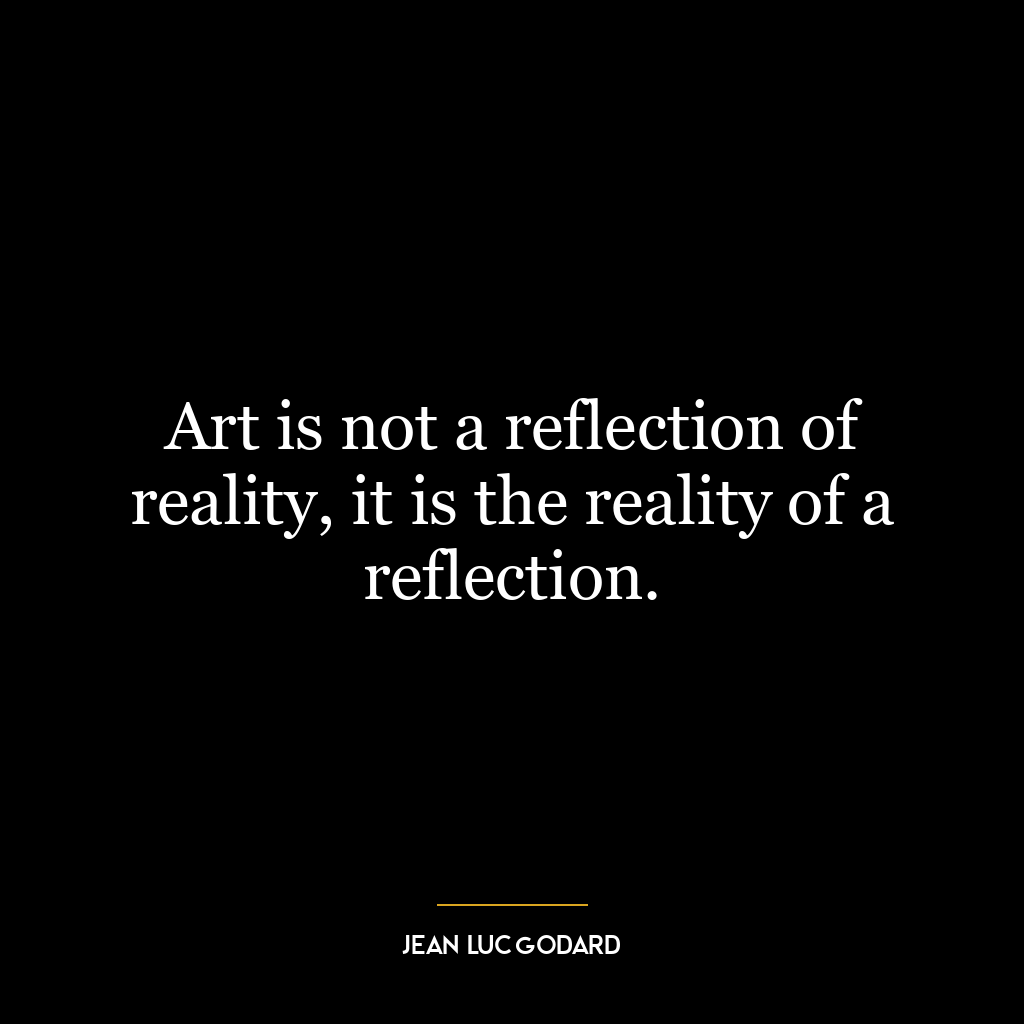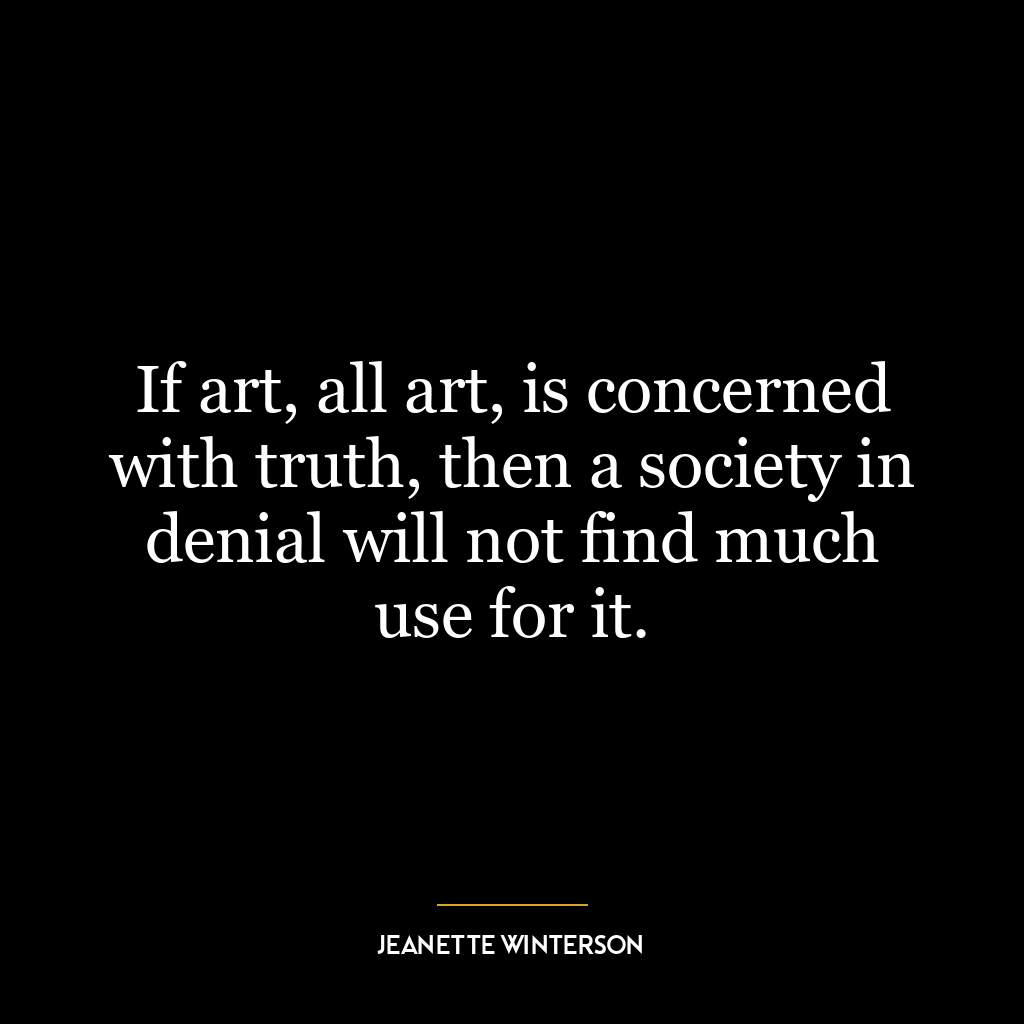This quote emphasizes the unchanging nature of truth and untruth, or falsehood. It suggests that truth is a constant, unwavering entity, unaffected by time or situation. Similarly, untruth always remains an untruth; it can never become a truth. This highlights the inherent value of honesty and integrity.
The second part of the quote – “this is what matters, this is right desire” – implies that understanding and acknowledging this distinction between truth and untruth should be our primary aspiration. It’s about prioritizing truthfulness in our thoughts and actions as a moral compass guiding us towards ethical behavior.
Applying this teaching to today’s world might involve striving for transparency in all aspects of life- personal relationships, professional interactions, societal norms etc. In an era where misinformation can spread rapidly via social media platforms or biased news outlets, recognizing the importance of absolute truths becomes even more crucial.
In terms of personal development, embracing this principle means cultivating honesty within oneself. This could manifest as self-awareness (being truthful to oneself about one’s strengths and weaknesses), authenticity (representing oneself honestly to others), or integrity (staying true to one’s values even when no one else is watching).
By doing so we not only foster trust in our relationships but also build inner strength by aligning ourselves with what is fundamentally real – the truth. We become more grounded individuals who are not easily swayed by external influences because we understand that while perceptions may vary from person to person, “Truth is always truth,” just as “untruth is always untruth.”

